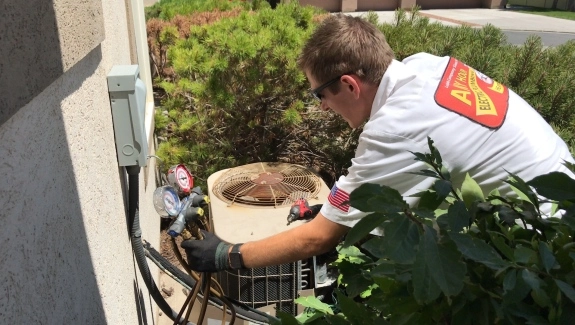An electrical surge is a brief spike in voltage. Those spikes can seriously damage appliances and wiring. That’s because most appliances, outlets, and devices are rated for a specific range of voltage. At the time of a surge, they have too many volts, and the internal parts get overloaded and fried.
A good first step is changing your filter. That helps keep the air flowing the way it should so your cooling system can do its job.
At the same time, you can draw your curtains or close your blinds during the hottest part of the day. That can help keep your home cooler so that your air conditioner doesn’t have to work as hard.
A good rule of thumb is trimming back the plants around your outdoor unit, or condenser. Debris and overgrowth can slow down or stop the airflow, so you’ll want to keep plants and trees trimmed away back 2-4 feet.
Once you’ve finished your own maintenance, it’s a great idea to have a tune-up done. A trained technician can thoroughly check your system and suggest proactive repairs before the summer heat sets in. This way you can avoid breakdowns in the middle of the hottest and busiest part of summer.

The easiest and least expensive time to work on your cooling system is before temperatures start rising. A tune up ensures your system can provide reliable, efficient service all season long.
Contact your air conditioning contractor, or if you don’t have someone you trust, feel free to call Any Hour Services. We would be happy to perform a tune up so you can start summer with confidence in your cooling system.